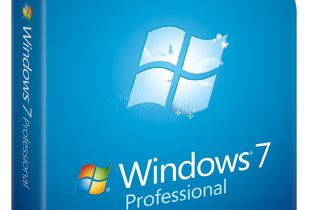Need to Know: Windows 7
Microsoft’s latest operating system Windows 7 arrives tomorrow. Here’s what you need to know.

Microsoft's Windows 7 operating system arrives this week, riding a wave of positive reviews and anti-Vista sentiment all the way to the tills.
But is Windows 7 so much better than its predecessor? And, if you do decide to shell out for a copy, which version should you get? We answer your questions here.
Microsoft has a new operating system. So what?
This is Microsoft's follow-up to Vista, which is widely considered to be "less good" - and that's according to the software maker itself.
So if you're using a Microsoft product on your PC - and nine out of 10 Brits are - you're either using the "less good" Vista or its predecessor, the eight-year-old XP.
Okay. Tell me more about the new features.
Click here to read our full Windows 7 review, but here are the basics on the new features.
Get the ITPro. daily newsletter
Receive our latest news, industry updates, featured resources and more. Sign up today to receive our FREE report on AI cyber crime & security - newly updated for 2024.
Windows 7 is designed for use with touchscreens, which is clear from the large icons and clean layout.
It has some nice user experience touches, too, including the ability to 'pin' applications and documents to the bottom of the screen for easier access. Applications can be snapped together, so working out of two apps, such as copying and pasting from the web to Word, is much simpler.
The OS also comes with a pretty new media centre, making it easier to manage videos, pictures and other bits and pieces.
It's smaller than Vista and faster, promising faster boot and resume times, and has a better search function for uncovering lost documents.
And, as Windows 7 uses the same kernel as Vista, your old drivers should still work and most applications should be compatible.
Basically, it's faster, shinier and nicer to use than Vista.
So which version should I get?
There are three main editions of Windows 7, plus the netbook-friendly Starter edition. The main three that Microsoft is offering are Home Premium, Professional and Ultimate.
Among other features, Professional adds XP Mode and a Backup system, while Ultimate includes BitLocker. (Ultimate is essentially the Enterprise version, which is only available through volume licensing.)
If you already have a version of Windows, you can buy an upgrade edition. If you don't, you'll need to buy the full version.
How much is that going to cost?
Pricing has varied over the past few months, so your best bet is to look online or in the shops for a deal - if you haven't ordered already, that is.
Microsoft's official pricing for upgrades is:
Windows 7 Home Premium - 79.99 until 31 December, 99.99 thereafter
Windows 7 Professional - 189.99
Windows 7 Ultimate - 199.99
For the full version of Windows 7:
Windows 7 Home Premium - 149.99
Windows 7 Professional - 219.99
Windows 7 Ultimate - 229.99
There's also a Family Pack edition, which is three copies of Home for 149.
Clean install or upgrade?
If you're on XP because your current computer is eight-years-old, you'll most likely need to buy a new machine. You can check if your hardware is robust enough for Windows 7 here.
If you're on XP because your current computer is a year old and you just hate Vista so very, very much, you should probably still do a fresh install rather than an upgrade.
If you're on Vista, you can possibly just upgrade, rather than wiping your computer with a clean install.
That's the basic answer. The reality is much more complicated. Microsoft has produced a handy chart to show exactly who should do what depending on their current OS.
Essentially, if you're on XP or Vista Starter, you'll need to do a clean install, rather than upgrade. The same holds true if you're moving from 32-bit to 64-bit.
With Vista to Windows 7 moves, you can do a simple upgrade if you're staying at the same level of OS. So if you're moving from the Home edition up to Professional, you'll need to do a clean install, while if you're downgrading or staying at the same version, you can just upgrade.
Read on here for more Windows 7 coverage.
Want to read more background on the latest IT topics? Click here for all the tech cheatsheets in our Need to Know series.
Most Popular





